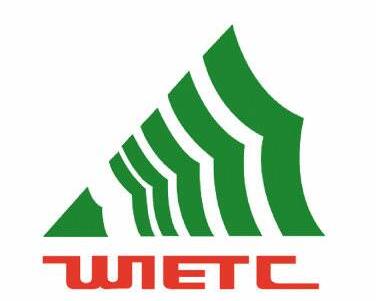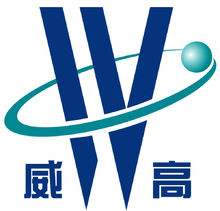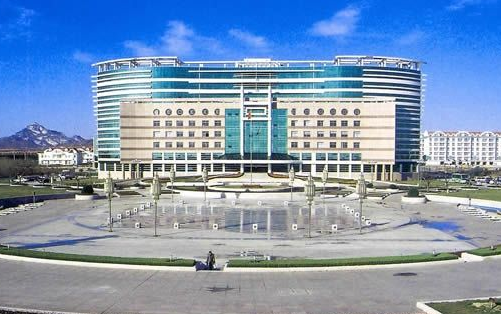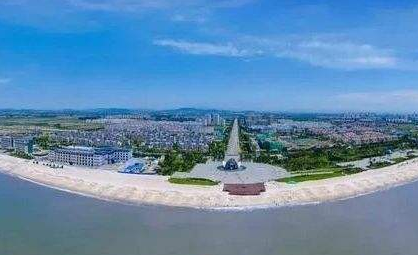翻译新闻 News
科技翻译例文分享---工程行业
来源:网络 作者:本站 发布时间:2021年03月08日 阅读次数: 次
The Engineering Profession
Engineering is one of the oldest occupations in history. Without the skills included in the broad field of engineering, our present-day civilization never could have evolved. The first toolmakers who chipped arrows and spears from rock were the forerunners of modern mechanical engineers. The craftsmen who discovered metals in the earth and found ways to refine and use them were the ancestors of mining and metallurgical engineers. And the skilled technicians who devised irrigation systems and erected the marvellous buildings of the ancient world were the civil engineers of their time. One of the earliest names that has come down to us in history is that of Imhotep, the designer of the stepped pyramid at Sakkara in Egypt about 3000 BC.
Engineering is often defined as making practical application of theoretical sciences such as physics and mechanics. Many of the early branches of engineering were based not on science but on empirical information that depended on observation and experience rather than on theoretical knowledge. Those who devised methods for splitting the massive blacks that were needed to build Stone-henge in England or the unique pyramids of Egypt discovered the principle of the wedge by trial for the pyramids were probably raised into place by means of ramps of earth that surrounded the structures as they rose; it was a practical application of the inclined plane, even though the concept was not understood in terms that could be quantified or expressed mathematically.
Quantification has been one of the principal reasons for the explosion of scientific knowledge since the beginning of the modern age in the sixteenth and seventeenth centuries. Another important factor has been the development of the experimental method to verify theories. Quantification involves putting the data or pieces of information resulting from experimentation into exact mathematical terms. It cannot be stressed too strongly that mathematics is the language of modern engineering.
Since the nineteenth century both scientific and practical application of its results have escalated. The mechanical engineer now has the mathematical ability to calculate the mechanical advantage that results from the complex interaction of many different mechanisms. He or she has new and stronger materials to work with and enormous new sources of power. The Industrial Revolution began by putting water and steam to work;since then machines using electricity, gasoline, and other energy sources have become so widespread that they now do a very large proportion of the work of the world.
One result of the rapid expansion of scientific knowledge was an increase in the number of scientific and engineering specialities. By the end of the nineteenth century not only were mechanical, civil, and mining and metallurgical engineering established but the newer specialities of chemical and electrical engineering emerged. This expansion has continued to the present day. We now have, for example, nuclear, petroleum, aerospace, and electronic engineering. Within the field of each engineering there are subdivisions. For example, within the field of civil engineering itself, there are subdivisions;structural engineering, which deals with permanent structure; hydraulic engineering which is concerned with systems involving the flow and control of water or other fluids ; and sanitary or enviromental engineering, which involves the study of water supply, purification, and sewer systems. The major subdivision of mechanical engineering is industrial engineering which is concerned with complete mechanical systems for industry rather than individual machines.
Another result of the increase in scientific knowledge is that engineering has grown into a profession. A profession is an occupation like law, medicine, or engineering that requires specialized, advanced education; indeed, they are often called the "learned professions". Until the nineteenth century, engineers generally were craftsmen or project organizers who learned their skills through apprenticeship, on-the-job training, or trial and error. Nowadays, many engineers spend years studying at universities for advanced degree. Yet even those engineers who do not study for advanced degrees must be aware of changes m their field and those related to it.
Thus, the word engineer is used in two ways in English. One usage refers to the professional engineer who has a university degree and education in mathematics, science, and one of the engineering specialities. Engineer, however, is also used to refer to a person who operates or maintains an engine or machine. An excellent example is the railroad locomotive engineer who operates a train. Engineers in this sense are essentially technicians rather than professional engineers.
参考译文
工程行业
工程学是历史上最古老的行业之一。要是没有广阔的工程学领域里所拥有的种种技术的话,那么,决不可能有今天的文明。那些用石块削制箭头和枪矛的初期工具制作者,是现代机械工程师的先驱。在地球上发现了金属并找到了精炼和便用金属的办法的工匠,是采矿和冶金工程师的祖宗,而设计灌溉系统并建造古代神奇建筑物的有娴熟技术的技术人员,则是当时的土木工程师。从历史上流传下来的最古老的名字之一,是伊霍德普,他是在大约公元前三千年古埃及撒喀拉阶梯形金宇塔的设计者。
人们常常把工程学定义为实际应用理论科学(比如物理学和力学〉的学科。工程学初期的许多分科都不是以科学为基础,而是以经验资料为基础的;而后者有赖于观察结果与经验,却不取决于理论知识。那些当时想出办法把建造英国石柱群和世界独有的埃及金字塔所需要的巨石破开的人,在试验中发现了楔的原理,因为金字塔很可能是在建造的过程中利用环绕在四周的斜土坡逐步堆砌上去的;这是斜面原理的一个实际应用,尽管人们在当时对斜面原理的概念还不能从量上去了解,也不能用数学公式去表示。
量化是自16世纪和17世纪现代化时代开始以来造成知识爆炸的主要原因之一。另一个重要因素则是用来检验理论的实验方法获得了发展。量化涉及到把根据实验获得的数据或各种零星资料归纳成精确的数学表达式。因此,数学是现代工程学的语言,这样说怎么都不算太过分。
自从19世纪以来,数学成果在科学上和实际问题上的应用都有了飞速的发展。机械工程师现在有能力用数学方法来计算许多种不同机构之间复杂的相互作用所产生的机械效益。人们有新型的强度更高的材料供自己使用,并且有庞大的新能源,工业革命从驱使水和蒸汽做工作开始。从此之后,用电、用汽油和用其他能源的机器已非常普及,它们现在干着世界上绝大部分的工作。
科学知识迅速扩展的一个结果,曾经是科学专业与工程专业两者在数量上的增长。到19世纪末,不但产生了机械工程、土木工程以及采矿和冶金工程,而且还出现了化学工程与电气工程这些新专业。这种扩展过程一直继续至今。例如,我们理在有核工程、石化工程、航空航天工程以及电子工程等。在每门工程领域内还有细分的专业。例如,在土木工程自己的领域里,就有下列这些分科:结构工程一一研究水久性结构;水力工程一一涉及到水或其他流体的流动与控制的系统;以及环境卫生或环保工程一一研究供水系统、水净化系统与排污系统等,机械工程的主要分支是工业工程,它涉及到工业上的全套机械系统,而不是研究单台机器。
科学知识增长的另一个结果是,工程学已发展成一种专门职业【行业】。专门职业是指像法律、医学或工程学那样的要求受到专业高等教育的行业;事实上,它们常被称之为“有学问的职业[行业]”。19世纪以前,工程师通常还只是些技工或工程项目的组织者,他们通过学徒,成岗位培训或试凑法等学会技艺。而现在,许多工程师要花费多年时间在大学里为高等学位而研学。然而,即便那些不是为了高等学位才学习的工程师们,也必须了解自己领域里的发展变化及与自己领域有关的发展变化。
这样,工程师这个词在英语里就有两种用法。其一是指专业工程师,他们受过高等教育,具有数学,科学和某一门工程专业方面的大学学位。但工程师还用来指操作或维护发动机或机器的人。一个很贴切的例子就是开火车的铁路机车工程师。这个意义上的工程师实质上是技术员,而不是专业工程师。
东营翻译公司



















